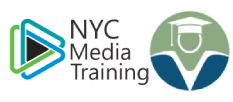For those who have lost jobs during the COVID-19 pandemic, the prolonged downtime has brought new challenges about spending their time productively.
Marketing expert Vince Thompson says that scenario has created a whole new hiring dynamic. When employers begin interviewing again, they will scrutinize more than just the resume to assess candidates’ skills, experience, and initiative.
“One of the main questions employers will have for every job prospect will be, ‘What did you do to improve yourself personally and professionally, and others, during COVID?’ “says Thompson, author of Build Brand You: How to Use Your College Experience To Find And Win Your First Job. “That story you have to tell and sell is going to be the difference-maker in whether you land a new opportunity when we get to the other side of this crisis. It’s going to tell a potential employer everything they need to know about an individual. Did you feel sorry for yourself, did you binge watch TV, or did you learn a new skill and try to rebrand yourself for what will be a different and challenging job market?” Thompson offers some insights about the post-pandemic job market and how job seekers should approach it:
Younger generations can grow through adversity. Thompson says that for many people in their 20s and 30s, getting laid off during COVID and struggling to find work in a crowded market is a growing experience that will ultimately benefit them. “In the long term, it’ll be the best thing that ever happened to them,” Thompson says. “Before COVID, unemployment was virtually non-existent. These kids had high expectations and wanted to be in leadership roles quickly, and if it didn’t work out, they job-hopped. Now I think they’ll insert some humility and patience into their job-seeking process. They’ll develop an appreciation for a job and empathy for what others are going through. I think it’s going to be a wake-up call for the younger generations.”
Employers are looking for people who can pivot. “With competition fierce for jobs, you have very little time to get employers’ attention,” Thompson says. “You have to develop that hook in your story that sets you apart from other candidates. And you have to remember that every employer is thinking differently about the world and their business model than they did 12 months ago. So, they want people who have proven their ability to grow and those with mental flexibility who can pivot quickly. What have you done during COVID, or learned during it, that applies to new ways of helping companies and their consumers?”
Keep pushing professional development. “Business leaders and economists see 2021 as a year of transition as industries undergo more changes,” Thompson says. “New opportunities will abound, and those who are proactive and stay on top of self-improvement practices, including upskilling, will prosper. Employers will be looking for soft skills such as critical thinking and problem-solving as well as tech-savvy.”
Find and monetize your passion. “If you’ve always had a passion or a hobby that you can make appealing to others and monetize, now is the time,” Thompson says. “Go online with it as a side gig while you look for a full-time job. Package and tell your story on social media and weave it to potential employers. That type of creativity, attitude, and effort shown in your entrepreneurial pursuit could land you the full-time job.” “There is no time to waste in getting up to speed with a rapidly changing job market,” Thompson says. “Look at it this way: the best of you has yet to come.”




